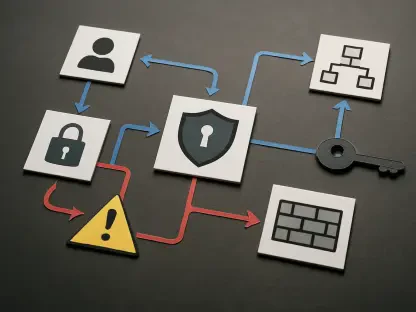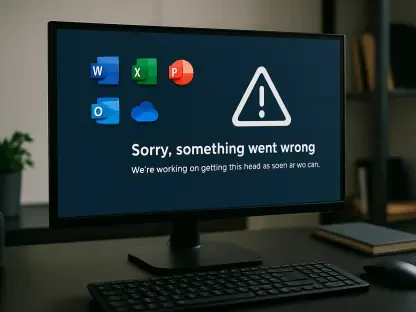On December 24, 2024, New York Governor Kathy Hochul enacted an amendment to New York General Business Law § 899-aa, refining the state’s data breach notification requirements. This enactment demands that businesses must notify New York residents of data breaches within thirty days of the breach’s discovery. Additionally, the amendment mandates that the New York Department of Financial Services (NYDFS) is among the necessary regulators that must be informed when a breach occurs, solidifying New York’s commitment to data security.
Key Provisions of the Amendment
Strict Notification Timeline
The law mandates that individuals and entities owning or licensing personal information (PI) notify affected residents, specific state regulators, and, in certain cases, consumer reporting agencies following a PI breach. Before this amendment, the law lacked a concrete timeline for informing impacted residents, only stipulating that notifications must be made “in the most expedient time possible and without unreasonable delay.” This ambiguous language often led to differing interpretations of what constituted a reasonable timeframe, resulting in inconsistencies. The new amendment explicitly sets a thirty-day deadline for notifications, eliminating uncertainties and establishing clearer expectations for compliance.
Notably, the amendment aligns New York’s notification requirements with those in Colorado, Florida, Maine, and Washington, which also impose a thirty-day notification timeframe. By removing language that allowed for notification delays consistent with measures to gauge the breach’s extent and restore system integrity, businesses are now propelled toward more immediate action. However, the law still accommodates necessary delays by law enforcement needs, ensuring that the response to breaches is both urgent and practical. This balanced approach reflects a commitment to transparency while also addressing the practicalities of managing breaches effectively.
Enhanced Notification Obligations
The amendment expands its scope by imposing a thirty-day notification deadline on businesses that maintain, but do not own, PI data. The law previously stipulated that such notifications should be immediate but lacked a specific timeframe. This new provision underscores the importance of prompt action regardless of whether the entity owns or merely maintains the data. Furthermore, NYDFS has now been included as a regulatory body that must be notified, adding to the previous requirement to inform the State Attorney General, the New York Department of State, and the New York State Police. This inclusion is distinct from NYDFS’s existing cybersecurity and extortion payment incident reporting requirements imposed on licensed financial institutions.
Adding NYDFS to the list of entities to be informed of data breaches broadens the oversight and response framework, ensuring that financial regulatory bodies are kept in the loop. The comprehensive approach not only serves to protect consumers but also strengthens systemic accountability and oversight. Businesses involved in handling PI must now navigate a more intricate notification landscape, reflecting the evolving standards in data protection and breach response.
Historical Context and Legislative Evolution
SHIELD Act of 2019
The 2024 amendment follows substantial changes introduced by the SHIELD Act of 2019, which expanded the definition of PI and what constitutes a breach. The SHIELD Act had already heightened data security obligations for entities handling New York residents’ PI, setting a precedent for rigorous data protection measures that the recent amendment builds upon. By broadening the scope of PI to include biometric information, email addresses coupled with passwords, and other non-traditional identifiers, the SHIELD Act laid the groundwork for more comprehensive data security frameworks. It served as a necessary step in recognizing the evolving landscape of personal data and aiming to protect it appropriately.
Moreover, the amendments brought forward by the SHIELD Act required businesses to implement reasonable administrative, technical, and physical safeguards for protecting PI. This legislative effort urged organizations to adopt a more proactive stance on data security, promoting a culture of vigilance and compliance. The cultural shift initiated by the SHIELD Act meant that companies handling PI had to continuously reassess and upgrade their security measures, making the 2024 amendment’s new requirements a natural progression in the state’s legislative journey.
Aligning with National Best Practices
On December 24, 2024, New York Governor Kathy Hochul signed an amendment to New York General Business Law § 899-aa, updating the state’s data breach notification requirements. This new legislation stipulates that businesses must notify New York residents of any data breaches within thirty days of discovering the breach. Furthermore, the amendment requires that the New York Department of Financial Services (NYDFS) be among the notified regulators when such a breach occurs. This regulation underscores New York’s dedication to ensuring data security and protecting the personal information of its residents. The amendment is a proactive measure to bolster consumer protection and enhance transparency in the aftermath of data breaches. By mandating prompt notification, New York aims to empower its residents to take swift action in safeguarding their personal data. This move also reinforces the state’s vigilance against cyber threats, aligning with broader efforts to maintain robust data privacy standards in the digital age.









